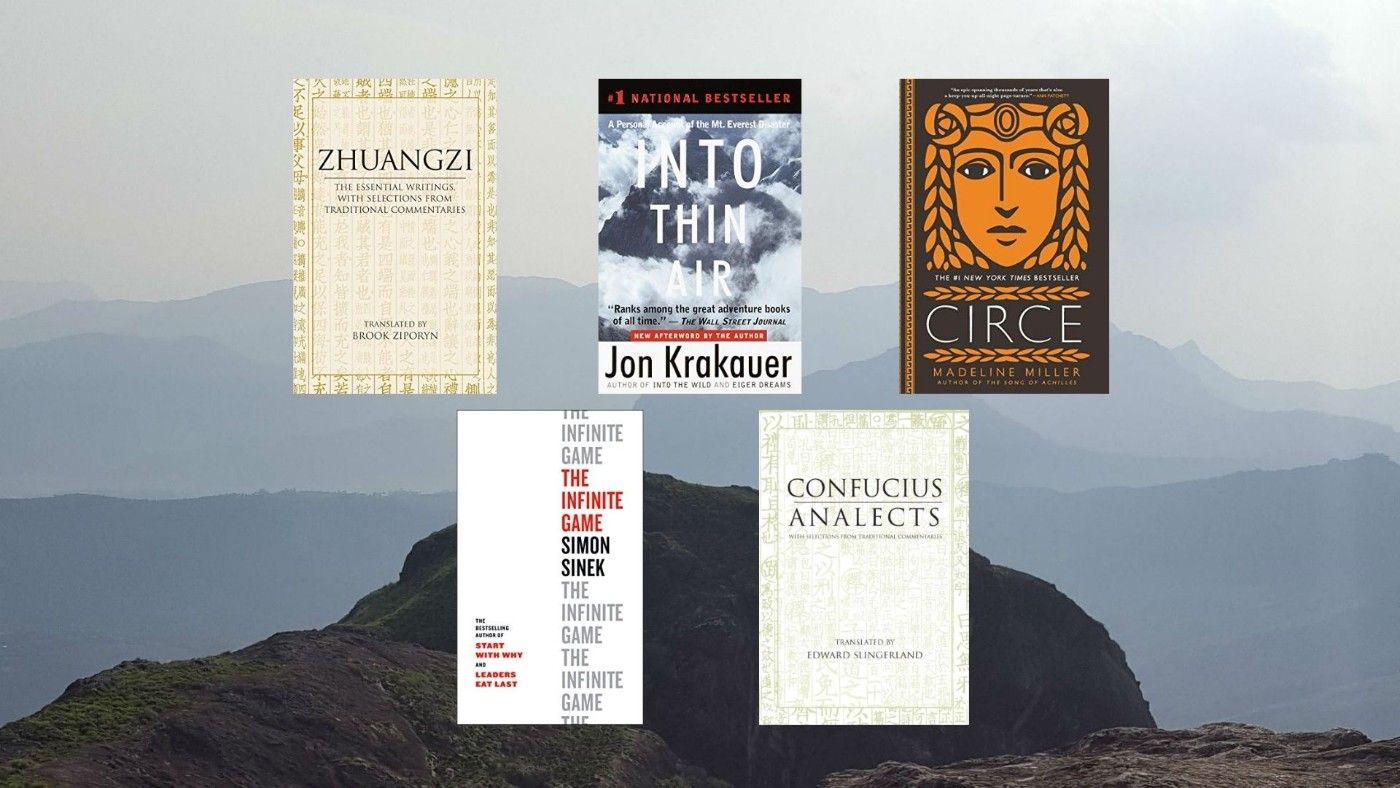My favorite books from 2021 include two works of ancient Chinese philosophy, a modern story rooted in Greek mythology, a mountaineering classic, and a book about how to have an 'infinite mindset'.
1. The Zhuangzi, translated by Brook Ziporyn
This is a classic of Ancient Chinese philosophy and Daoism in general. I had read an older translation of this several years ago 'for fun', but didn't really grasp a whole lot of it.
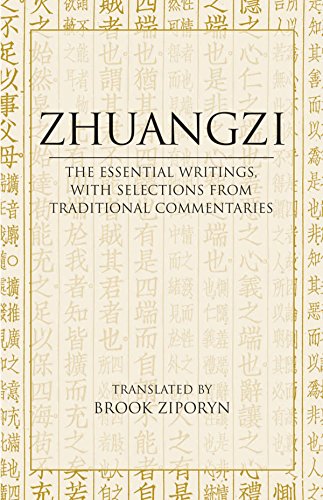
This time, I got a proper translation by Brook Ziporyn (Hackett Classics) and spent the proper time to understand each passage. The translator's notes and additional commentaries add the extra layer of context. I also read Confucius' Analects as a precursor to that book, and that helped a good amount too as the Zhuangzi is in large part a response to Confucianism and other competing philosophical systems of ancient Chinese thought.
The Zhuangzi is a very eclectic collection of teachings from the title author of the book (though, like Confucius, the Zhuangzi may have been composed after the death of Zhuangzi himself). This work emphasizes a sort of 'return to nature' approach to living one's life, questions the notion of prescribed 'methods' or 'systems' of thought, and discusses how all morality is a human construct that can't be trusted.
Oh, and of course since this is a Daoist text, the Zhuangzi also discusses the unknowability of "the Course" (also can be rendered as "the Dao" or "the Way") of Daoism, but that how we should all aspire to follow this mystical Course in order to lead a fulfilled life.
This is the kind of book where the more time you spend thinking about and contemplating what it's trying to say, the more you get out of it. Highly recommended for anyone who likes a moderate and rewarding challenge.
For further reading, I recently published a post on Bad Philosopher about the idea of un-learning as it's presented to us in the Zhuangzi.
2. Into Thin Air: A Personal Account of the Mt. Everest Disaster, by John Krakauer
I'm pretty big into non-fiction books about disaster and survival. In my opinion, Alfred Lansing's Endurance: Shackleton's Incredible Voyage is the best in the genre. This book isn't that, but it's not too far off in terms of epicness.
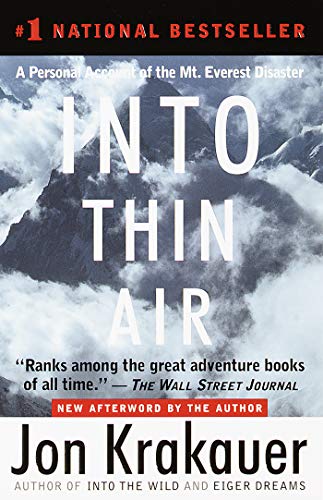
I believe Krakauer is best known for his book Into the Wild, which I read a number of years ago. Into Thin Air covers the infamous 1996 Everest disaster that took place over May 10-11, which Krakauer witnessed while on an expedition to summit Everest as a journalist. I'd been pretty well-versed in this particular event for quite a while, but had never read Krakauer's book—it's a totally worthwhile read regardless of how much you already know.
Krakauer spends quite a bit of time discussing the five climbers he directly interacted with over several weeks leading up to that fateful summit day in '96. Each one of these climbers has their own unique circumstances that ultimately lead to their deaths on the mountain, and their stories are put together masterfully by Krakauer as he relays, to the best of his ability, the factual details of what occurred through his own eyes.
This is ultimately a fascinating tale of hubris and ego, made all the more impactful by the fact that the author was there to witness these events in person.
There are multiple documentaries and even a fictionalized film that cover the 1996 Everest disaster. But for a more recent short film about the current state of Everest, I highly recommend The Ghosts Above by Renan Ozturk:
3. Circe, by Madeline Miller
I probably can't say enough good things about this modern retelling of the story of Circe, a goddess from Greek mythology.
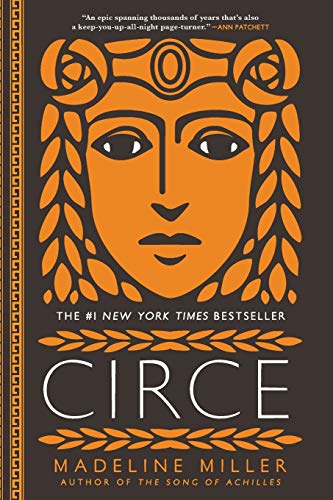
Circe famously appears in Homer's Odyssey when Odysseus finds himself on her island and she transforms most of his crew into swine.
I don't want to spoil too much of it, but basically Miller spins a unique and fascinating narrative around Circe that navigates through almost the entirety of Greek mythology in the process. At various times in the story, most of the great heroes and gods from Greek mythology make an appearance in some fashion. And yet, this book doesn't get bogged down with a vast array of characters like we might see in one of the Avengers movies: instead, Circe remains the main character throughout the entirety of the story, and each encounter she has with one of these great heroes or gods is purposeful and pushes the narrative forward.
If you know a bit about Greek mythology, this book is a real treat. If you know nothing, it's still a super accessible read and it would probably be worth your time to do a little bit of research on each of the different mythological figures as they appear. All in all, this is a very impressive work of fiction, especially considering how much of it is based in pre-existing Greek myths (this also isn't a re-telling; from what I can tell, all of the events described here seem to correlate perfectly with ancient sources of these myths).
4. The Analects, translated by Edward Slingerland
Following up from the Zhuangzi recommendation, the last book on this list is none other than the ultimate classic of Chinese Philosophy: Confucius' Analects.
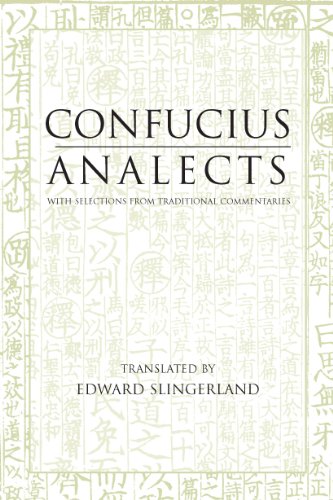
Probably no human being other than Mao Zedong has had a greater influence on modern Chinese culture than Confucius (and even with that statement, we have some very obvious recency bias—Confucius predates Mao by more than 2,400 years).
Known as an obscure scholar (also a 'sage' or 'master') during his era, Confucius lived during a state of relative chaos immediately preceding the Warring States period of Chinese history (which began in the 5th century BC).
This time period was characterized by Confucius himself as an age of degradation in society, a time when morality, justice, and benevolent leadership were in steep decline. After having died thinking himself a failure for being unable to reverse these trends, Confucianism later rose to prominence in Chinese society when his disciples compiled his teachings in the form of the Analects.
As a reaction to the trends he saw throughout various Chinese states during his life, Confucius spent a lot of time teaching how to live a virtuous life, with a heavy emphasis on practicing filial piety and duty to one's family, as well as giving proper respect to others based on one's status in society.
The ultimate ideal for Confucius was for a ruler to themselves become perfectly virtuous, so that then everyone else in society would follow suit and themselves act with perfect virtue. This is the concept of wu-wei ("effortless action") in action; the perfect ruler serves no other purpose than to serve as an exemplar for society—an example of what everyone else in that society should themselves aspire to be.
On an even greater level than the Zhuangzi, the edition of the Analects that I read included extensive commentaries by other ancient Chinese philosophers that breathe an incredible amount of life into an already expansive text. Confucius us basically the Plato and Aristotle of Chinese philosophy, and most Chinese philosophers that have come afterwards have largely been those who have either commented on or built upon the work of Confucius.
This is the perfect book for anyone who's interested in Chinese culture or philosophy, as the teachings within are just as relevant today as they were during Confucius' own time—which is admirable for any philosophical work to achieve.
5. The Infinite Game, by Simon Sinek
This was the first book I read by Simon Sinek, and I loved it. I immediately jumped into reading Start with Why afterwards, and I regretted it. In my opinion, Sinek's best work is this one—the theme is very much the same as the more well known Start with Why, but in my opinion that's a shame because the ideas in The Infinite Game are far more developed and refined.
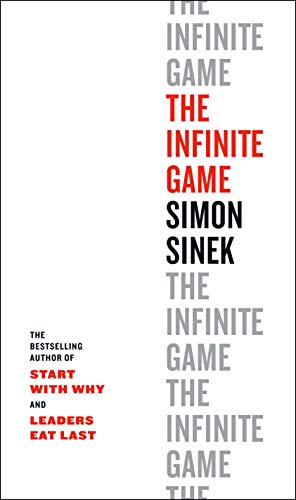
Basically, Sinek's thesis is that the greatest companies (or 'brands') in the world don't care about financial goals and fiscal results. Instead, the greatest companies primarily care about their ultimate mission, and they'll do everything they can to achieve that mission at all costs.
In Sinek's view, a company that is able to always keep its ultimate mission (or its 'why') in view is unlikely to fail or go bankrupt. Ironically, it's usually those companies that start focusing too heavily on the bottom line that end up going bankrupt—Sinek spends a good amount of time theorizing why that is. I mean, we do already know: companies that try to cut costs to make more profit end up losing revenue, which leads to further cost-cutting and an inevitable death spiral.
Still, Sinek's ideas are fresh and well presented.
Throughout this book, we're presented with a well thought-out and reasonable theory that in the 'infinite' game of business, there is no end-goal. The real goal is to not lose. This means not losing your will to continue and not going bankrupt. Instead, you're competing for the ability to keep on competing, forever. And no amount of short-term profit-making is ever going to bring a company closer to that goal.
Sinek argues that if we view this game of business with an 'infinite mindset', we can see that most failures in business are a result of running out of the will or resources to continue playing the game. The key to success is to maintain a meaningful mission and goal that you can pursue indefinitely, so that you always have a reason to keep playing. This also requires us to have the flexibility to pivot and adapt our business models
As someone who's launching my own business, this book helped orient me towards doing it the right way. I mean, if my primary goal was to turn a quick profit or even earn a sustainable income, the last thing I should be doing is creating a philosophy podcast, right?
But while it might not be the most profitable venture in the short-term, building Bad Philosopher is to me an infinite project without an end because it aligns with my own personal 'why' in life.
My goal is to spread wisdom in a world that's in dire need of some wisdom boosting. If we all had more wisdom, we would be able to make better decisions about how to live meaningful lives. That's why I'm creating this podcast, website, and community of bad philosophers.
So that's it, and now it's time to start on my 2022 list. Does anyone have any good book recommendations for the new year? If so, let me know in the comments below!

